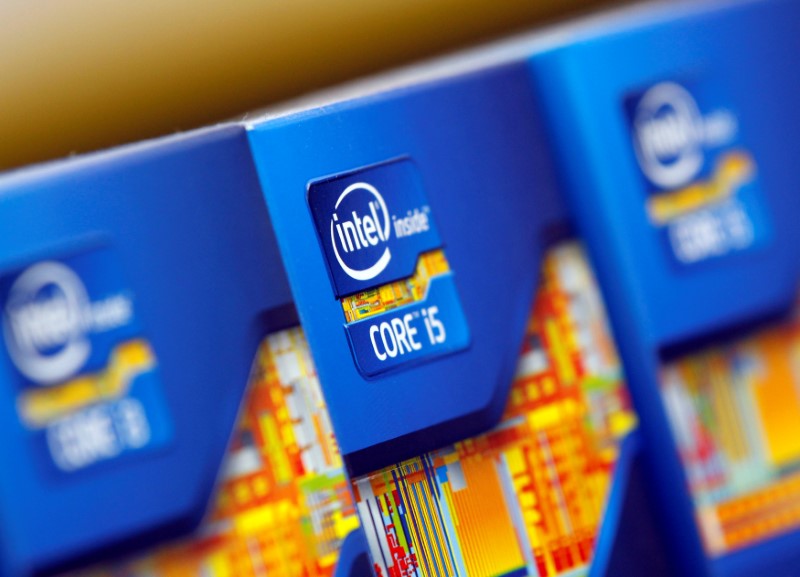Investing.com’s stocks of the week
Intel (NASDAQ:INTC) has reported a surge in the operating losses of its foundry business, signaling challenges in its efforts to reclaim a leading position in chip technology.
The company revealed that for 2023, the losses widened to $7 billion from $5.2 billion in the previous year. Moreover, revenue for the foundry segment declined by 31% to $18.9 billion from $27.49 billion in the same period.
CEO Pat Gelsinger attributed the foundry's underperformance to poor strategic choices, including the decision to not adopt extreme ultraviolet (EUV) lithography technology from the Dutch firm ASML (ASML) a year ago.
Despite their high price, exceeding $150 million, EUV machines are considered more efficient than older chip manufacturing technologies.
This series of strategic missteps has led Intel to outsource approximately 30% of its wafer production to external manufacturers, including Taiwan Semiconductor Manufacturing Company (TSM). Intel aims to reduce this dependency to about 20%.
The chipmaker has also unveiled long-term financial targets for its foundry business.
The company forecasts that Intel Foundry's operational margins will break even sometime between now and 2030, with operating losses expected to reach their highest point in 2024, while targeting 40% adjusted gross margins and 30% adjusted operating margins.
“Intel Foundry currently has an expected lifetime deal value with external customers of more than $15 billion and remains focused on its goal of becoming the world’s second-largest foundry by 2030,” the company stated.
INTC shares fell over 4% in after-hours trading.
For its broader Intel Products segment, the company has set a goal of achieving a 60% non-GAAP gross margin and a 40% adjusted operating gross margin by the end of 2030.
In addition, the company said it plans to invest $100 billion in constructing and expanding chip manufacturing facilities across four U.S. states.
This move is a part of Intel's broader strategy to turn around its business by attracting external clients to its manufacturing services. In line with this plan, Intel announced it would begin reporting its manufacturing operations' financial results as an independent segment.
Furthermore, the chipmaker also announced that Lorenzo Flores has been appointed as the Chief Financial Officer of Intel Foundry, effective April 8, 2024.
Flores joins from Xilinx, where he served in the same capacity.
